Cycling for Health, Environment, and Inclusiveness: Policy Implementation
Research shows that cycling is a cost-effective way to improve health, reduce pollution, and make cities more livable. It lowers risks of chronic disease, cuts healthcare and travel costs, and provides a zero-emission alternative to cars that frees urban space for greener, more people-friendly areas. Cycling is also affordable, promotes social equity, and broadens access to jobs, education, and services.
Given these advantages of cycling, this research project explores how bicycling can be promoted both for leisure activities, commuting, and transportation through a case study of Kunshan City. The project, supported by a grant from the Kunshan Government Research Fund, provides an in-depth analysis of the current status and future development of bicycling in Kunshan, offering suggestions for building a sustainable urban transport system and establishing Kunshan as a “Cycling Culture City.”
Kunshan has excellent conditions to become a “Cycling Culture City” in which cycling is integrated in a broad range of activities and throughout people’s lives. Kunshan already has a quite good bicycling infrastructure. Moreover, it hosts many well-known bicycle and component companies, including industry leaders such as Giant and SRAM. This industrial cluster effect provides Kunshan with a strong foundation for advancing bicycle transportation, offering both industrial capacity and technological innovation.
As part of this project, I have organized two events to initiate and facilitate discussion between different stakeholders. The first event took place in April 2025 and drew more than 50 participants from staff, faculty, and students across DKU and off-campus bicycle industry representatives. The event (featured in this YouTube video) combined a lecture, Q&A, and a networking session with a bike ride.
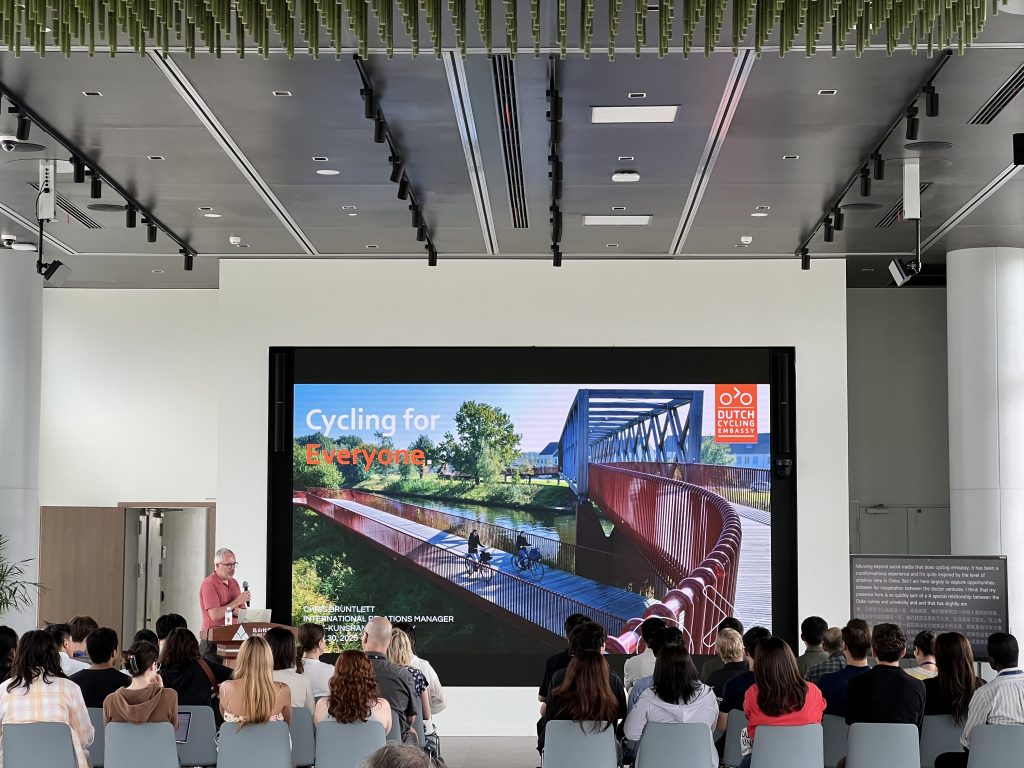
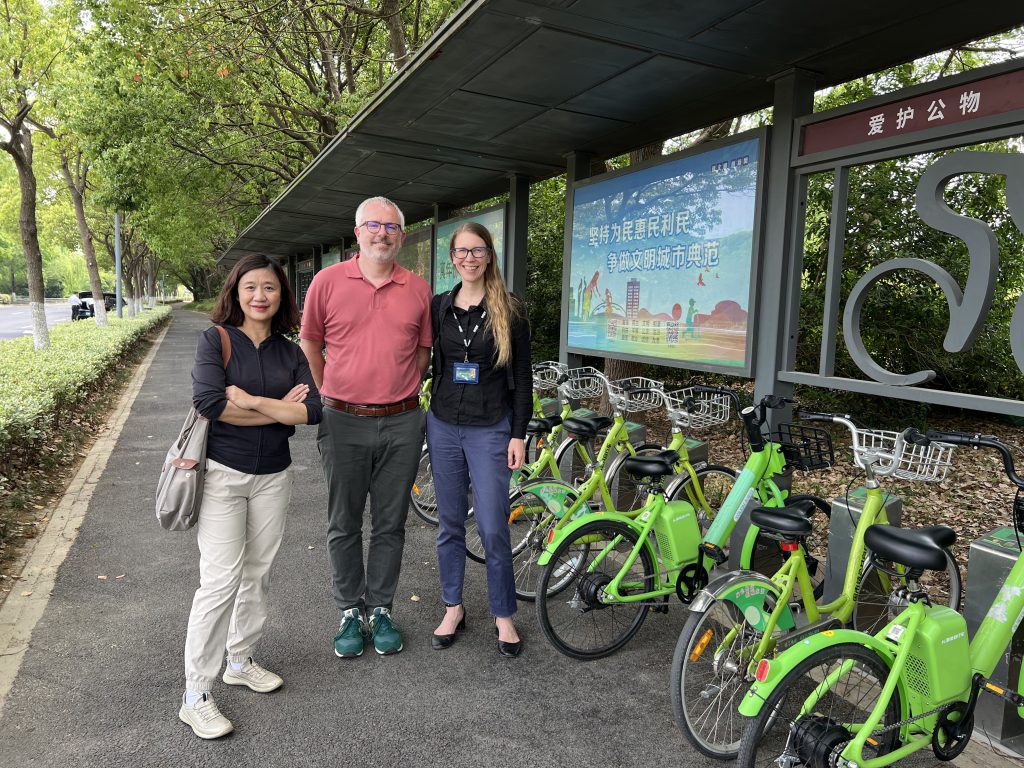
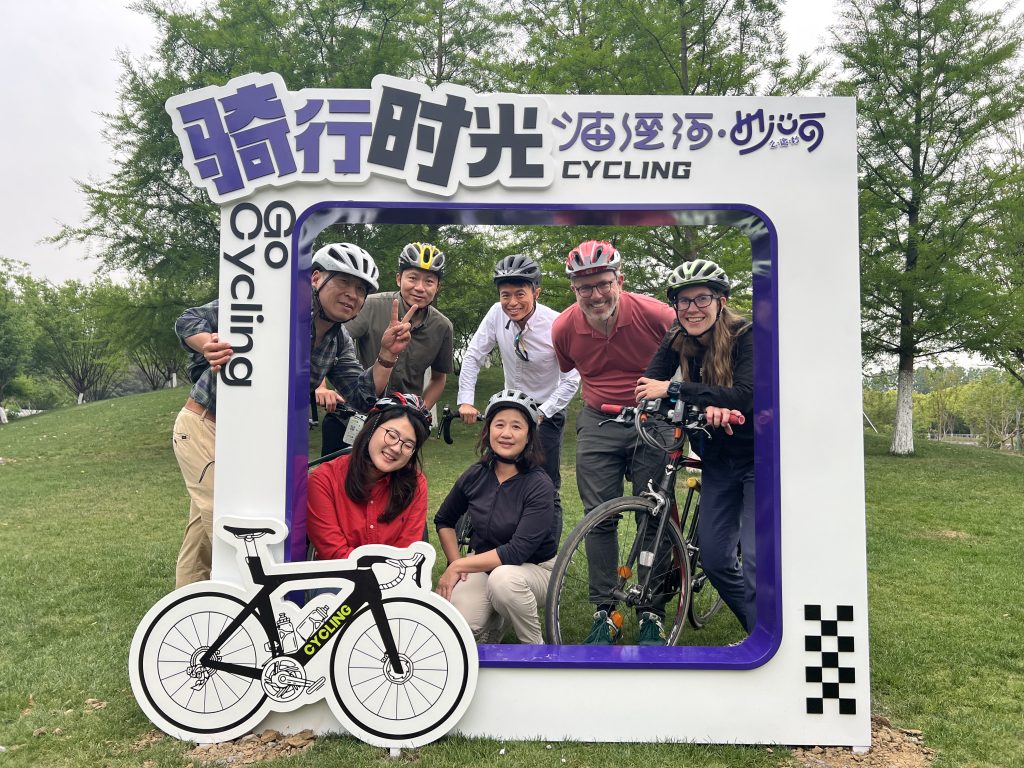
The second event, in September 2025, was a full day workshop consisting of a bike ride, a key note lecture, and presentations by presentations by scholars, policymakers, industry professionals, and community advocates, fostering rich dialogue across academic, community, and professional sectors. It gathered over 50 participants and contributed to the launch of the DKU cycling club.
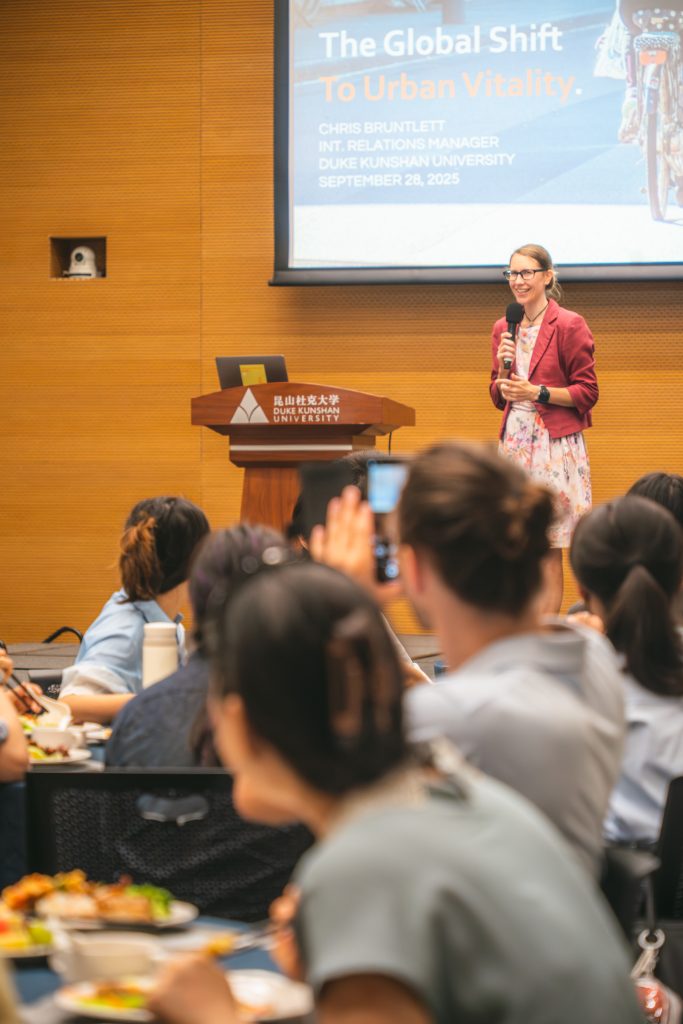
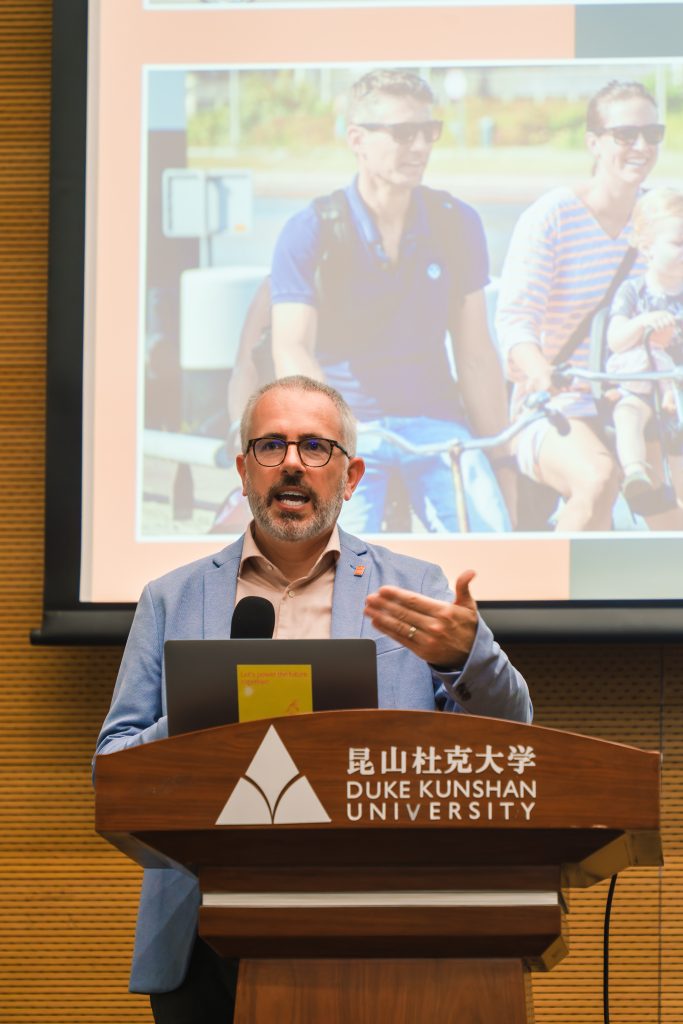
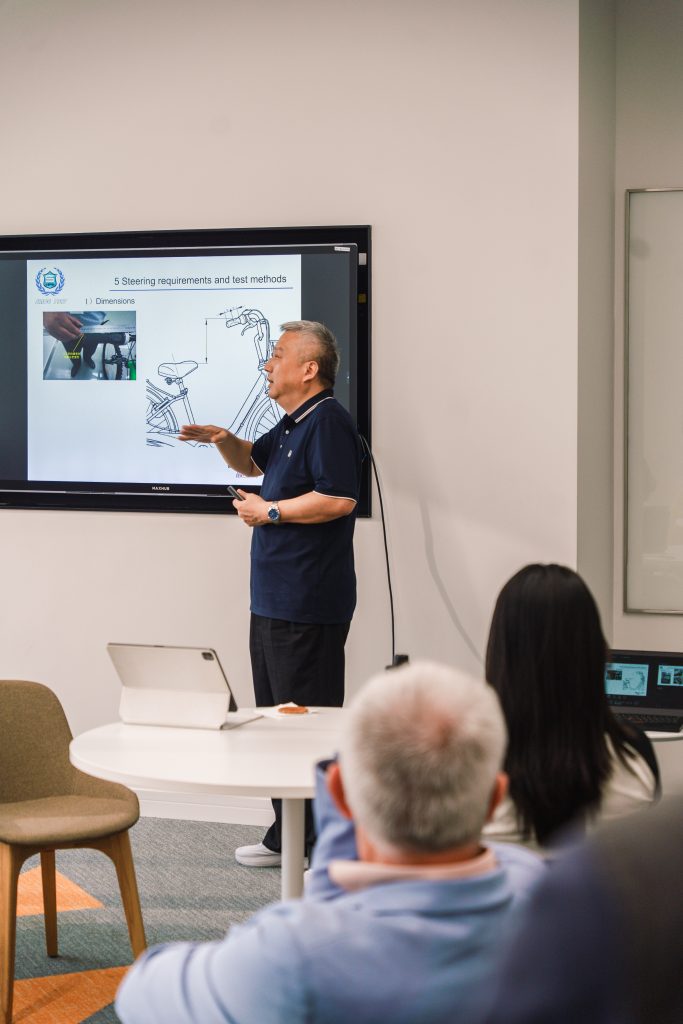
I aim to organize a follow-up workshop to take place in 2026, with the aim of working towards a special issue about policy process research on bicycling, covering topics such as advocacy, policy design, policy coordination, and policy implementation. Click here to read about my other research projects on policy processes in China.
